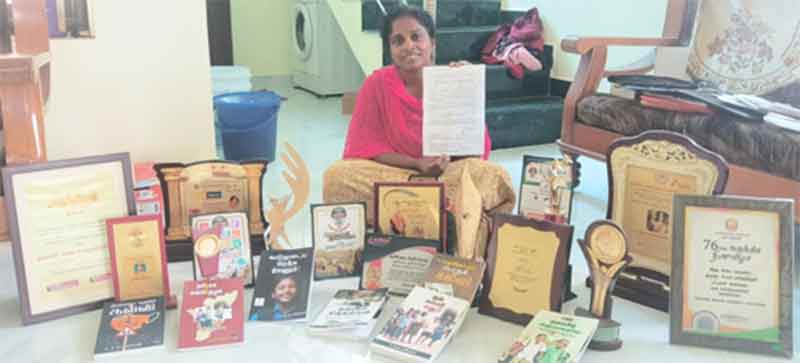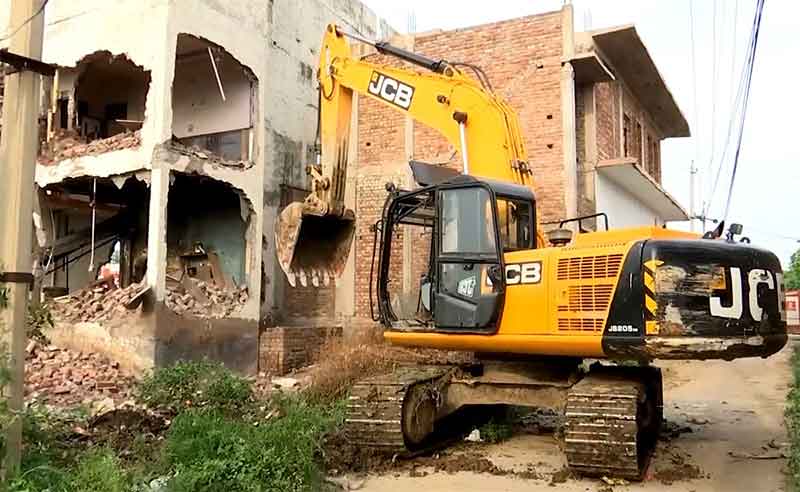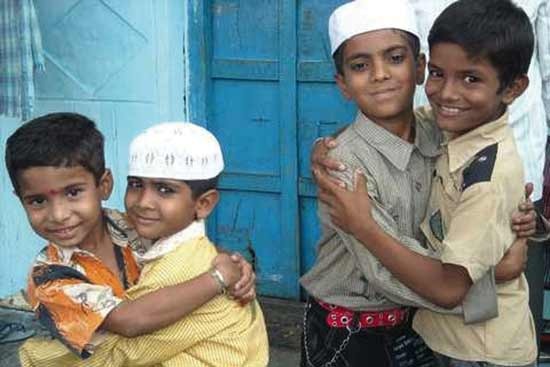
Paramilitary groups continued to pose by far the biggest threat to Colombia’s community leaders and human rights defenders last year, says a newly released report.
In its annual report, Somos Defensores (SD), a human rights organization, registered a drop in assassinations of social leaders from 155 in 2018 to 124 in 2019, but an increase in death threats that went from 583 in 2018 to 628 last year.
Whether the drop in assassinations maintains is uncertain, according to the SD, which registered an increase in killings in the second half of the year.
The figures show that during 2019 the assassinations against leaders in Colombia reduced compared to 2018. However, in the second half of 2019, a higher number of these acts of aggression were registered. Just counting the months of August, September, October and December there are a total of 56 cases, which indicates that only in those months 45% of the murders of the year were concentrated.
Of all the 844 registered acts of aggression, 47% were carried out by paramilitary groups that were supposed to have demobilized under former President Alvaro Uribe between 2003 and 2006, but have continued sowing terror ever since.
Most of the “unknown” perpetrators were identified as unidentifiable hooded men whose aggression mainly took place in areas where there are conflicts about land, particularly in the southern Cauca province.
Indigenous leaders are the main victims
Indigenous leaders continued to be the main victim of aggression, according to the SD.
Of the 835 registered victims, 271 played a leading role in their indigenous community.
Another 188 were common community leaders and 128 were human rights defenders.
Cauca, which is largely inhabited by indigenous peoples and home to multiple illegal armed groups, continued to be by far the most violent for social leader, albeit less than last year.
In the northwestern Antioquia province and the northeastern Arauca province, the violence saw explosive increases, according to the SD.
Constant failure of the administration
The ongoing violence against social leaders proves the constant failure of the administration of President Ivan Duque to effectively curb the violence since the far-right president took office in 2018.
Instead of implementing the peace process, and in particular the National Committee for Security Guarantees that seeks the development of public policy to dismantle the paramilitary structure, the president has proposed a series of actions, of which none had any effect.
Defense minister leaves evidence of orchestrating terrorism online
Colombia’s defense minister forgot to get rid of evidence proving he personally coordinated the Bogota Massacre in which police murdered seven people and injured at least 72 on Wednesday and Thursday.
Defense Minister Carlos Holmes Trujillo said on Wednesday evening he was in charge of the security forces while police were carrying out what Bogota Mayor Claudia Lopez called “an authentic massacre.”
Evidence of state terror campaign left on social media
Evidence that far-right President Ivan Duque‘s chief of staff Diego Molano, Vice-Interior Minister Daniel Palacios, Armed Forces commander Luis Navarro and acting National Police director General Gustavo Moreno were with Trujillo during the massacre was later found online.
The defense minister was called to Congress on Saturday, but that would be the least of his worries.
The government claim that he led what Lopez called “the most serious event that has happened in Bogota since the Palace of Justice siege” of 1985 would be enough to get him and the other top officials in court.
Until Sunday morning, nobody had even bothered to delete the evidence confirming Trujillo, Navarro and Moreno were leading the two-day state terrorism campaign while Molano presumably kept the president informed.
The Bogota massacre timeline
Trujillo and the acting National Police chief arrived at the military command post before 7:38PM when they published a tweet in which Trujillo announced “the legitimate use of state force” in response to unrest in that followed the brutal killing of an unarmed man in the capital early that morning.
The National Police on a national level has been instructed to take all necessary measures, not just to protect the lives and integrity of the citizens in the face of the violent events and violence that are taking place.
Acting National Police director Gustavo Moreno
The shooting started less than an hour later, according to human rights organization Corporacion Juridica, which said Thursday it received its first reports from throughout the capital from 8:30PM onward.
Five minutes later, Bogota’s mayor Tweeted she was on her way to the Bogota Police Department “to coordinate the actions of the unified command post” led by Trujillo and warning about police brutality.
Bogota Mayor Claudia Lopez
Lopez was not able to get in touch with the defense minister until 10:20PM, she tweeted, calling on civilians not to use violence and urging the police “to adhere to the legitimate exercise of their duties.”
At 10:28PM, the Defense Ministry tweeted images, saying “Trujillo leads the United Command Post together with the military leadership and the police” as if nothing was wrong.
One minute later, Trujillo published more photos, confirming the presence of the vice-minister of the interior and Duque’s chief of staff, pretending he was not leading a state terrorism campaign.
Throughout the evening “uniformed policemen, policemen hiding their uniforms or presumed members of the police in civilian clothes” had embarked on the massacre in at least four neighborhoods, Lopez said Friday.
Inspector General Fernando Carrillo received 90 minutes of video footage “where members of the Public Force are clearly shown shooting indiscriminately in different neighborhoods of the city,” according to Lopez.
By midnight, police had murdered seven people and 68 were injured by police bullets in Bogota alone, Lopez said Friday morning.
Trujillo published another video at 1:22AM on Thursday in which the defense minister said “at the United Command Post, led by the president of the republic, we made a national assessment.”
“With the participation of the mayor of Bogota,” he had decided to militarize Bogota, Trujillo said, urging to “stop stigmatizing the police.”
Defense Minister Carlos Holmes Trujillo
Lopez said Thursday she left the police station at 1:30AM.
At 3:19AM, from home and visibly distraught, Lopez confirmed people had been murdered and that 44 police stations had been destroyed both by citizens and police.
The mayor urged to “reestablish the evident lack of confidence and legitimacy of the police and the security bodies,” calling on the president for a “structural reform” to end abuse of power.
Lopez learns about Trujillo’s terror campaign
Lopez understood her authority as police commander was being undermined on Thursday morning and that the human cost was even bigger than she was aware of just a few hours before.
At 6AM, the defense ministry reiterated the reinforcement of troops in Bogota and announced a reward for information on the murders “at the request of the mayor,” and “reiterated its support in the district administration” of Lopez.
At a press conference with the defense minister at 6:30AM, the National Police’s vice-director announced dozens of arrests, without making any reference to the state terror campaign he and Trujillo would later apologize for.
Instead, the defense minister praised the police and claimed the government had a “zero tolerance policy” for cops breaking the law “or the ignorance of institutional regulations,” also omitting to mention the terror Trujillo and the National Police allegedly had unleashed in Bogota for the second time since November.
Instead, the defense minister began implying that “politicians” were behind the violence, implicitly shifting the blame to government critics.
At that point, the Inter-American Court for Human Rights stepped in, saying it “fiercely condemned the cases of police abuse and brutality.”
Now with international support and the knowledge she was being undermined, Lopez furiously announced the police had been shooting at people indiscriminately on orders that had not come from her police department.
I was at MEBOG from 8:45pm to 1:30am coordinating the District PMU. No one gave orders to use firearms, much less indiscriminately. But we have evidence from several places where this happened. We are reconstructing facts with victims and family members
In a press conference, Lopez claimed that “confidence in the security organisms isn’t strained, it is broken. And to reestablish it amendment, apologies, and the acknowledgement of facts” will be necessary.
Meanwhile, citizen reports of police terrorizing the city kept coming in and Lopez urged Inspector General Fernando Carrillo to carry out an investigation on who had ordered the police to indiscriminately open fire on unarmed civilians.
At the same time, President Ivan Duque spoke out, reiterating his supposed “zero tolerance policy” against the police brutality he was responsible for, but didn’t seem to know about.
Half an hour later, Inspector General Fernando Carrillo rejected any possibility that the notoriously ineffective military justice system could try the police crimes committed on Wednesday, opening the possibility of the defense minister, the interior minister, Duque’s chief of staff and the military command going to prison.
Ten minutes later, the Unites Nations’s Special Rapporteur on Freedom of Association, Clement Voule, said he was “closely following the situation in Colombia” and added that “the perpetrators of the excessive use of force must be punished.”
Powerful human rights organization Dejusticia called on the Supreme Court to initiate an investigation, claiming that the National Police led by Trujillo “not only threatens the right to protest, but represents a risk to the right to life, integrity, due process, and freedom of expression, among many others.”
The Supreme Court responded with a ruling in which it assumed the investigation into the murder of a student in November’s protests, removing the case from the notoriously ineffective military justice system.
Trujillo understands prison is looming
Trujillo has supported state terrorism since the 1990’s, but was now suddenly looking at the possibility of being taken to court on eight homicide charges.
The minister freaked out and called on “good Colombians,” i.e. those obedient to the government, for support and oppose the “death and vandalism of the instigators calling to disobey and destroy.”
Residents of cities across Colombia began taking to the street, but in rejection of Trujillo and the government.
Medellin Mayor Daniel Quintero called for the active, but non-violent resistance of abuse of force.
The commander of an anti-riot unit in Medellin told Colombia Reports that the mayor had given the order not to intervene and only defend property in cases of vandalism.
Petro called on his supporters throughout the country to “peacefully take the streets” and register any abuse of force.
Trujillo rushed back to his command post where he arrived before 8PM for another night of terror.
Duque’s boss, Former President Alvaro Uribe, called for a stage of siege but was told no alleged terrorist supporter was in charge of security in Colombia.
Instead, the opposition began reporting violent repression and began calling for the resignation of Trujillo, who had completely lost control unlike Bogota’s mayor, who was slowly retaking control over her police force.
At 10PM, the UN’s human rights office also raised its voice, claiming human rights leaders in Bogota and Villavicencio had been arrested while protests were reported throughout the country.
Duque, who had tried not to get involved in Trujillo’s alleged terrorism activities, took control as the terrorism plot was getting international attention and the president’s closest aides were on their way to prison.
Friday: Destruction of Duque
While reports on police repression were piling up, Petro stepped up the pressure at 11:30PM and called to “reestablish democracy in Bogota” and again at 0:30AM on Friday, claiming that only the resignation of the entire leadership of the National Police would allow to reestablish legitimacy.
Non-violence will now be very important now. The police leadership may no longer continue and Duque must understand this.
Opposition Senator Gustavo Petro
At 8AM, Petro claimed “the Duque regime no longer fits in a democracy,” called for intensified marches and accused Duque of trying to “stage a coup” against Bogota’s mayor.
They want a lethal body against protest that will remain in impunity because they know that the people will take to the streets.
Lopez, who reported eight injured residents due to police shootings, also had enough and openly questioned who her police force obeys. Her city council was mobilizing in the mayor’s support and all political forces began uniting in opposition of the president.
They disobeyed express and public instructions from the Mayor’s Office, so who do they obey? Justice, action and reform are urgently needed!
Trujillo broke and asked forgiveness for “any violation of the law” by the National Police at 10:22AM, announcing an internal investigation for the “alleged abuse of authority and homicide” in a desperate attempt to evade justice.
Lopez was not having any of it and said the president agreed to talk and see the bulk of evidence she had gathered of state terrorism which she would surrender to the Inspector General at 5PM.
The Colombian Commission of Jurists, which had been endorsed by the UN on Thursday, wasn’t having any of it either and demanded the Inspector General immediately remove the defense minister from his post while Duque was talking to Lopez.
To add insult to injury, opposition Senator Ivan Cepeda and 12 other NGO’s announced criminal charges against Trujillo and five police generals.
The take-down of Holmes and the National Police was now in full force, both legally and politically.
Having received 90 minutes of evidence of police terror from Lopez, the inspector general requested video footage that would prove alleged police abuse in at least seven other cities.
Moreno additionally had to provide Carrillo with an inventory of all the ammunition, firearms and explosives used on Wednesday and Thursday.
Duque desperately tried to seek scapegoats in an evening address to the country. The president announced the arrest of 140 people allegedly involved in vandalism, including “foreigners” who would be deported.
The president was roasted on social media and NGO’s and the opposition began preparing to bring the state terrorists who forgot to get rid of the evidence to justice.
Colombia kicks off human rights day with brutal police killing
President Ivan Duque hadn’t even announced he would be commemorating Colombia’s human rights day on Wednesday when Bogota police set the tone with the brutal killing of an unarmed man.
By the time Colombia’s citizens woke up for, their “happy human rights day” consisted of a video of the two Bogota policemen murdering the 46-year-old Javier Ordoñez, an attorney and father of two, that had hit the headlines.
Acting Bogota police commander Colonel Alexander Amaya said the cops had been suspended and he had ordered an investigation into why the cops had murdered an unarmed civilian.
Bogota Mayor Claudia Lopez announced she would provide judicial assistance for the victim’s family and a “structural reform that prevent and punishes police brutality.
Duque remained quiet. His appearance at the annual commemoration of human rights was already controversial as the president announced he would attend the event with his human rights adviser Nancy Patricia Gutierrez, who — of all things — is facing a criminal investigation for using terrorism to get into Congress in 2006.
The increasingly authoritarian Duque was already under severe criticism for using extreme violence to crack down on anti-government protests in November last year, because the president reportedly considered citizens exercising their constitutional right an act of insurgency.
According to the president, he would meet with “will participate in a conversation with young people about human rights, in order to hear their perspectives and reflections.”
Press will not be allowed to attend the event due to “biosafety protocols,”coincidentally preventing the pesky journalists asking inconvenient questions about the list of human rights violations that has been growing under Duque.
Widespread police brutality, the mass killing of human rights defenders and the use of the military to spy on journalists nearly forced the United Nations’ Human Rights Office to abandon Bogota last year.
SIGN UP FOR COUNTERCURRENTS DAILY NEWSLETTER
















































